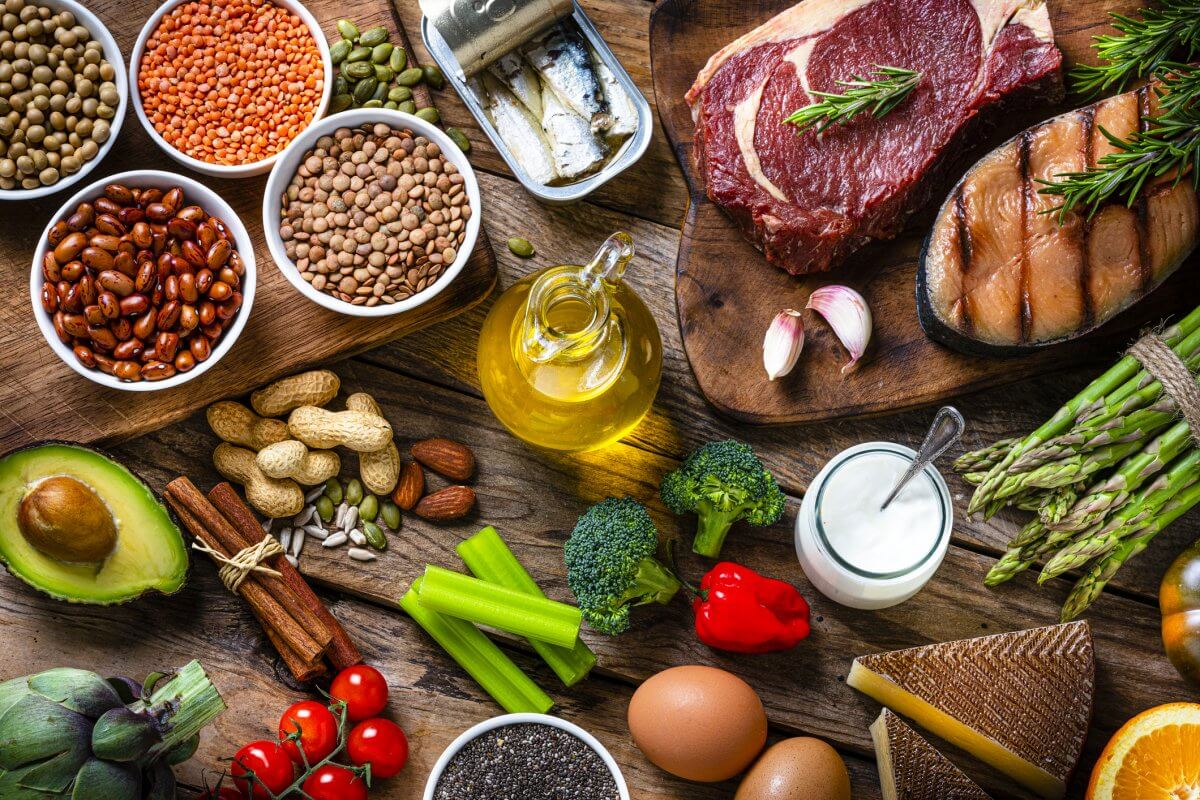Research suggests that following the Mediterranean diet for IVF and surrogacy may improve egg quality, resulting in more, high-quality embryos. When your body is nourished, your embryos have a better chance of thriving.
Optimizing your health before IVF is one of the most powerful steps you can take as an intended parent pursuing surrogacy.
If you’re beginning IVF for surrogacy, we can help you complete the necessary forms now so you’re fully prepared to be matched with a surrogate when your embryos are ready. Contact us today to get started.
In this guide, you’ll learn how the Mediterranean diet for IVF can support egg development, reduce inflammation, and help you prepare for a successful embryo creation process.
Disclaimer: This article is for informational purposes only and is not intended to serve as medical or nutritional advice. Always consult with a qualified healthcare provider, such as a registered dietitian or fertility specialist, before making dietary changes related to IVF or fertility treatment.
The Mediterranean Diet and IVF Success: Improving Embryo Viability for Surrogacy
What you eat in the months leading up to IVF can affect more than just your own health. It also impacts the viability and quality of the embryos created, which directly influences the success of the transfer to your surrogate.
One study found that eating more vegetables and fruit, limiting red meat and sodas and maintaining a healthy weight may improve ovarian reserve.
Key Benefits:
- Reduces inflammation: Chronic inflammation can interfere with egg quality and hormonal balance. The Mediterranean diet is often called an anti-inflammatory diet because it is rich in antioxidants and healthy fats.
- Enhances egg quality: Nutrients like Omega-3s and vitamin E (found in nuts and olive oil) help protect eggs from oxidative stress, which is particularly important for intended mothers creating embryos for surrogacy.
- Balances hormones: A diet low in processed foods and high in whole grains can help regulate insulin levels, which affects reproductive hormones crucial for successful egg retrieval.
While you can’t control every variable, your pre-IVF nutrition is one factor that’s within your hands.
Learn more about how you can prepare for your egg retrieval and ensure the best chances of success for your IVF and surrogacy journey.
Considering the Mediterranean Diet for IVF and Surrogacy? Here’s What to Know
The Mediterranean diet is based around following traditional dietary patterns of countries that border the Mediterranean Sea. These countries put an emphasis on whole, natural foods and heart-healthy fats.
Examples of some of the foods typically consumed when following the Mediterranean diet for IVF include:
- Extra virgin olive oil
- Leafy greens and cruciferous vegetables
- Whole grains (like quinoa, oats, barley)
- Legumes (lentils, chickpeas, beans)
- Fatty fish (salmon, sardines)
- Nuts and seeds
- Fresh fruits
For fertility, this style of eating is beneficial because it’s:
- Anti-inflammatory: Inflammation can interfere with ovulation and embryo implantation.
- Rich in antioxidants: These protect egg cells from oxidative stress and age-related decline.
- Supportive of hormonal health: Healthy fats and fiber help balance estrogen and other reproductive hormones.
Before beginning the Mediterranean diet for IVF, consult with your doctor or a qualified nutritionist.
Foods to Prioritize and Avoid Before Egg Retrieval
As you prepare for egg retrieval, certain foods can actively support egg development, while others may hinder your progress:
Prioritize:
- Dark leafy greens, broccoli, and Brussels sprouts
- Avocados and olive oil
- Berries, citrus, and pomegranate
- Wild-caught salmon, sardines
- Quinoa, oats, farro
- Water and herbal teas
Avoid or Limit:
- Processed meats and fast food
- Refined sugars and high-glycemic carbs
- Soda, excessive caffeine, and alcohol
- Trans fats (found in packaged snacks and fried foods)
A nutrient-rich approach helps reduce inflammation, stabilize blood sugar and set the stage for healthier hormone function—vital during the stimulation phase of IVF.
Creating a Mediterranean Diet Meal Plan for IVF
A well-balanced Mediterranean diet for IVF can be easy to follow with the right meal plan. Below are some fertility-boosting meal ideas:
Breakfast:
- Greek yogurt with walnuts, chia seeds, and honey
- Oatmeal with berries and flaxseeds
Lunch:
- Quinoa salad with grilled salmon, cherry tomatoes, and olive oil
- Chickpea and spinach wrap with hummus
Dinner:
- Grilled chicken with roasted vegetables and hummus
- Lentil soup with a side of whole-grain bread
Snacks:
- Almonds and dried apricots
- Sliced cucumbers with tzatziki
By following this diet, you provide your body with the key nutrients it needs to support IVF success, whether you are preparing for pregnancy yourself or creating healthy embryos for surrogacy.
Try These Easy Mediterranean Diet Recipes for IVF
With so many different dietary blogs, websites, influencers and more, finding a diet plan that fits your preferences and goals is easier than ever.
You may consider the following articles and diet plans to find the best fit as you begin adhering to the Mediterranean diet for IVF.
- 7 Day Mediterranean Meal Plan for Beginners – Eatingwell.com
- Mediterranean Diet: Food List and Meal Plan – Cleavland Clinic
- Mediterranean Diet Food for Breakfast, Lunch, and Dinner – Fox News
Taking Your Next Steps
Ready to take the next step? While you focus on creating embryos, our team can assist you in completing the necessary paperwork for your surrogacy journey.
We’ll walk you through every requirement so that you’re ready to be matched with a surrogate as soon as your embryos are. Fill out our simple form today.
